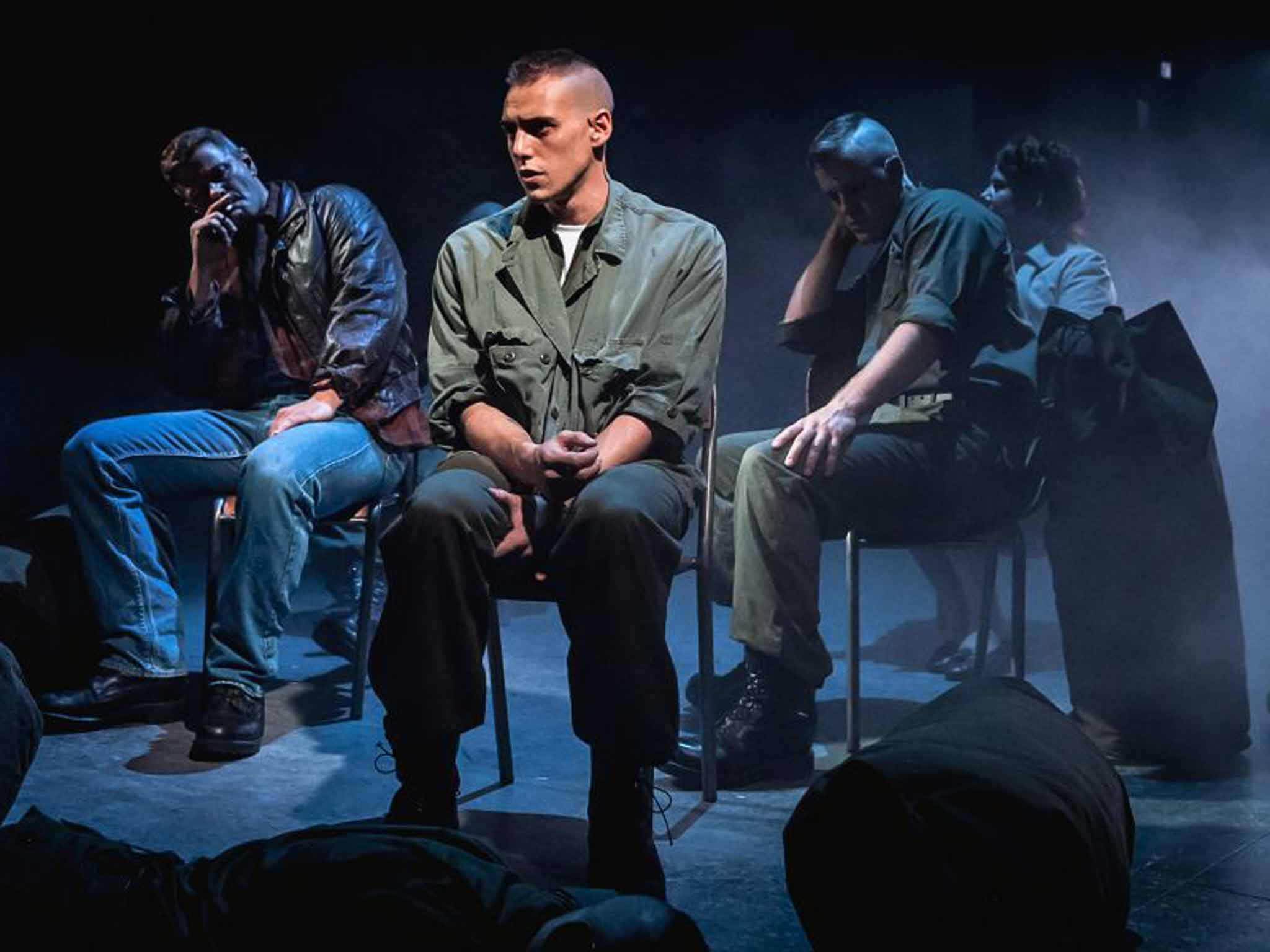Dogfight: offensive or outspoken?
Paul Taylor was shocked to see a theatre show he loved slammed as a misogynistic disgrace. Rather than be offended, we should celebrate its outspokenness, he argues

Your support helps us to tell the story
From reproductive rights to climate change to Big Tech, The Independent is on the ground when the story is developing. Whether it's investigating the financials of Elon Musk's pro-Trump PAC or producing our latest documentary, 'The A Word', which shines a light on the American women fighting for reproductive rights, we know how important it is to parse out the facts from the messaging.
At such a critical moment in US history, we need reporters on the ground. Your donation allows us to keep sending journalists to speak to both sides of the story.
The Independent is trusted by Americans across the entire political spectrum. And unlike many other quality news outlets, we choose not to lock Americans out of our reporting and analysis with paywalls. We believe quality journalism should be available to everyone, paid for by those who can afford it.
Your support makes all the difference.In recent times, there hasn't been a show that has polarised critical opinion as extremely as Dogfight, the Pasek and Paul musical, set in San Francisco in 1963, about a bunch of marines on their last night of shore leave before heading off to Vietnam. The dogfight of the title is the repellently misogynistic practice whereby the marines bet against each other as to who can procure the ugliest date for a last-hurrah dance.
This newspaper was the first to respond with a five-star notice for the extraordinary depth, charm, humour and pain with which the British premiere at Southwark Playhouse explores the central relationship between the shy, homely, intelligent and never self-pitying heroine Rose (Laura Jane Matthewson) and the virginal stud Eddie (Jamie Muscato), who goes on an uncomfortable learning curve from trickster cockiness, shame, sensitivity and finally soul-mate love as he tries to atone for his cruel original prank.
Other five-star reviews are now coming in thick and fast (the notices didn't all arrive in one fell swoop because some critics were away in Edinburgh when it opened) but these are counter-balanced by the equally vehement attacks on the piece. "A great bleeding chunk of Vietnam-era misogyny," declared one reviewer. Another chose to interpret the rousing, musically catchy treatment of the willed, women-scorning exuberance of the marines' valedictoryhigh-jinks as the "cheerily uncritical depiction of hateful misogyny".
The responses have been so diametrically at variance that Rebecca Trehearn, who is in wonderfully abrasive, drop-dead form as Marcy, the street-smart hooker, has posted a blog, entitled "It's a (critical) Dogfight", in which she presents them side by in two great columns. Speaking as "a woman who proudly identifies herself as feminist", she mounts an intelligent argument against the kind of knee-jerk righteousness that takes too little account of the historical context. To try to get the feel of the group mentality of scared, mostly uneducated young men – for whom the dogfight functions as a part of the pre-battle desensitisation process – is not the same thing as condoning what they do.
I found myself winded by the ferocity of the misogyny charges. So I went back, very willingly, to have another look at the show. There is nothing like having a high-minded reason for enjoying a second slice of treat. The experience prompted some general reflections about the kind of art that gets accused of purveying the values that it is in fact critically scrutinising.
I was reminded of a comment made by Christopher Ricks, a critic who has, with scrupulous discrimination, examined the charges brought against T S Eliot's poetry for anti-semitism ("the jew is underneath the lot") and Bob Dylan's songs for misogyny ("but she breaks just like a little girl"). His point is that great art refuses to play safe and derives its power, in part, by always running the risk of being misinterpreted (religious poetry or blasphemy etc). To switch to poplar culture for a moment, Alf Garnett would not have been the force he was if Till Death Us Do Part had not been open to being perceived by some as a vehicle for his unfortunate views.
I took my youngest daughter, now 21 and one of my home-grown (so to speak) misogyny detectors, and we found ourselves wondering what more Matthew Ryan's superbly cast production might have done: perhaps have someone gesticulating revulsion at the side, like a signer for the deaf, or holding placards reading "Don't try this at home".
Then there's the question of whether Rose (presented in a debut of endlessly humane subtlety and humour by Matthewson) should forgive Muscato's electrifying Eddie for his original misdeeds. The politically correct may bewail her magnanimity but the attentive might note that she is the most intelligent person on the stage by far and that, through generosity and imagination, she draws out of Eddie the kind of man who is worthy of her.
Those who panned the show should also give it a second whirl in the hope of enjoying what they missed, or resisted, the first time round.
'Dogfight', Southwark Playhouse, London SE1 (020 7407 0234) to 13 September
Join our commenting forum
Join thought-provoking conversations, follow other Independent readers and see their replies
Comments